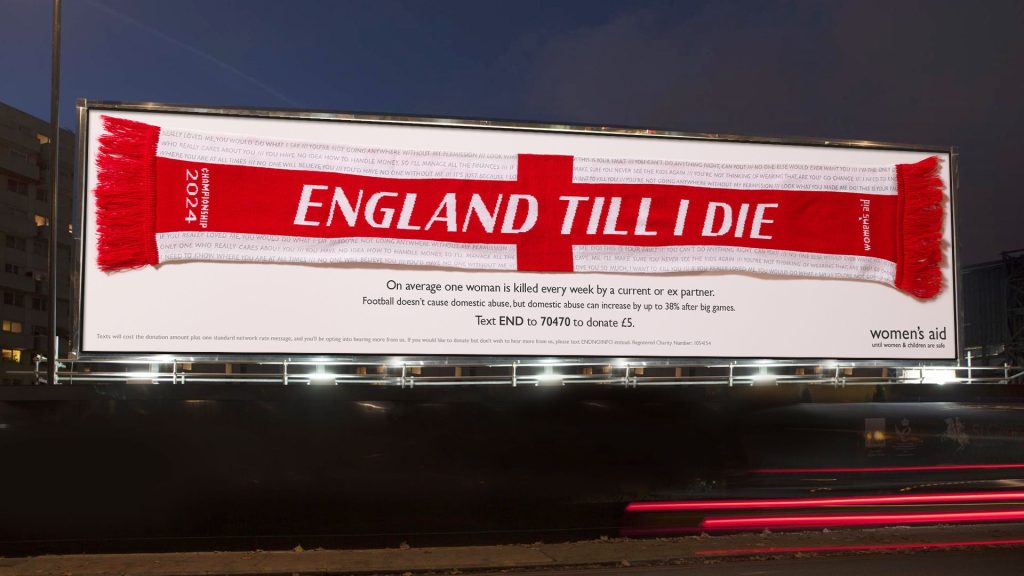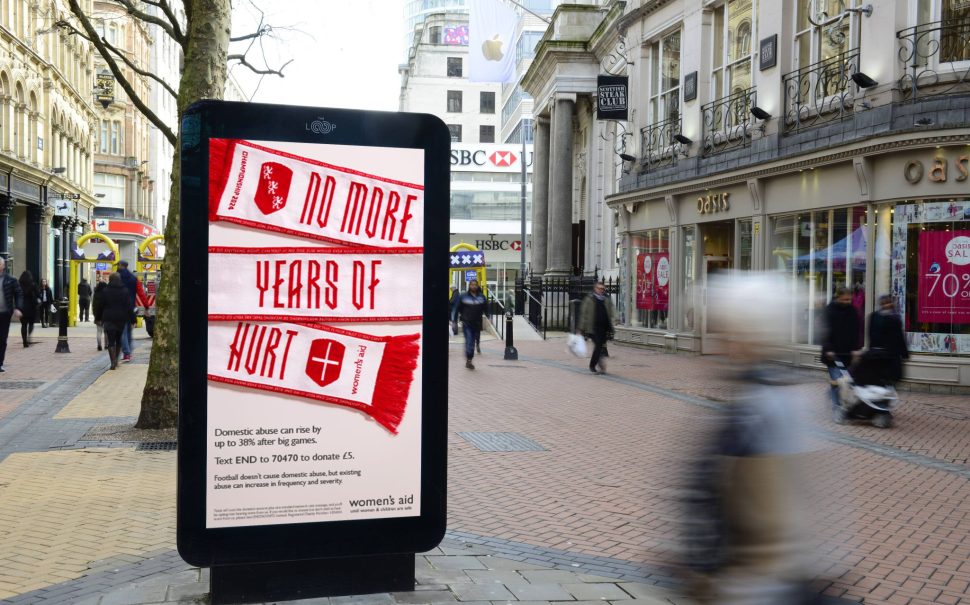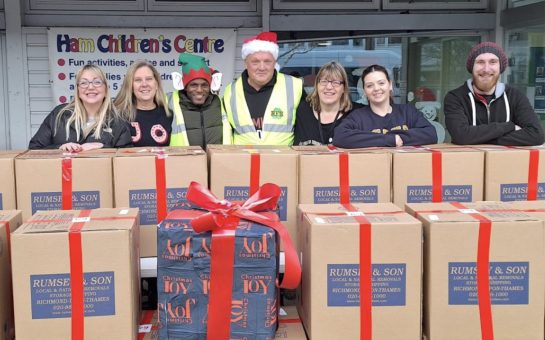Domestic abuse incidents in England rise dramatically during high profile football matches, statistics have revealed.
Research from the National Centre for Domestic Violence (NCDV) shows that the number of reported incidents increases by 26% if England plays, by 38% if England loses, and by 11% the next day regardless of the result.
Studies from the University of Warwick and Lancaster University also demonstrated that surges in domestic violence reports coincided with major football tournaments.
Sharon Bryan, head of partnerships and development of domestic abuse services at NCDV, said: “After the Euros, the call handlers in the office were receiving a lot of calls from women who were giving football as the reason they had been hurt the night before.
“In England, domestic abuse does tend to focus around football.
“Football is so wrapped up in the identity of its fans that for them it’s not just a football team losing but it’s also somehow them that has failed.
“It all comes down to power and control, which is the root cause of domestic abuse as well.”
The NCDV recently launched a campaign in collaboration with Solace Women’s Aid and social media platform Four Nine to run alongside the 2024 European Championships.
The campaign shows women wearing football shirts with the number 38 on the back, representing the 38% increase in domestic violence reports when England loses.

Bryan said: “I don’t think the darker side of football is recognised enough or accepted.
“Addressing the problem is always going to come down to raising awareness, as domestic abuse is still a very taboo subject that people don’t like talking about or admitting to.
“It’s all about making it socially unacceptable which in turn would reduce it.”
During the 2022 FIFA World Cup, Women’s Aid launched the first iteration of their ‘He’s Coming Home’ campaign, which aimed to place conversations around domestic abuse at the heart of football.
‘He’s Coming Home’ resonated powerfully with the public, generating 23 million TikTok views, a 78.3% increase in social media driven traffic to Women’s Aid’s website and a 44.3% increase in visits to their donate page.
The success of ‘He’s Coming Home’ led Women’s Aid to create this year’s Euro’s campaign, ‘No More Hurt’, which highlights the ongoing epidemic of domestic abuse in the country.
The campaign features football scarves that have been imprinted with subverted versions of well-known football chants in order to highlight the domestic abuse emergency.
The campaign aims to mobilise the public by creating important conversations amongst football fans and make domestic abuse intolerable in society.
A spokesperson from Women’s Aid said: “We know that football doesn’t cause domestic abuse, but we also know that it can make existing abuse worse.
“This is thought to be linked to the higher alcohol consumption that normally accompanies sporting events, or the strong emotional response to a win or a loss.
“There has been progress when it comes to people recognising the impact that football, and specifically football tournaments, have on domestic abuse, but there is a lot more that still needs to be done.
“We need to see more research conducted so that we can understand the relationship between football tournaments and domestic abuse, then we can plan for effective change.”
Those needing support concerning this topic should contact the NCDV on 0800 970 2070.
Image credits: Women’s Aid





